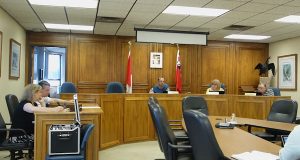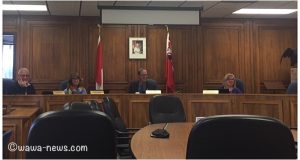Jul 14, 2016
On Thursday, July 7th, 2016 the matter of Gerald Liddle and Tamara Liddle (who represented themselves) v. the Corporation of the Municipality of Wawa (P. Cassan / T. Harmar, Counsel for the Respondent) was heard by Justice E. Gareau.
Gerald Liddle and Tamara Liddle (applicants) brought their Notice of Application (1) filed on June 20th, 2016; and Corporation of the Municipality of Wawa (Respondent) brought a motion to strike the application in its entirety.
However, the day before, Wednesday, July 6th, these two actions were stopped because the applicants filed a Notice of Discontinuance (2), in which the applicants wholly discontinued the application against the respondent.
Being that the Liddles were self-represented, Justice E. Gareau noted that they should have delivered a Notice of Abandonment (3), instead of delivering a Notice of Discontinuance. Since the Municipality did not oppose the Notice of Discontinuance, Justice Gareau stated, “I am prepared to treat the notice of discontinuance filed by the applicants as a notice of abandonment pursuant to Rule 38.08(1); therefore leave of the court is not required for the applicants to abandon their application.”
The Notice of Application as filed “contained a nine page letter dated May 17, 2016 from Tamara Liddle to members of Wawa Municipal Council, a two page document titled ‘Issues for Chris Wray Complaint’, and a three page letter dated December 4, 2015 to the Corporation of the Municipality of Wawa from Paliare Roland Rosenberg Rothstein LLP.” Justice E. Gareau noted, “These documents are not properly part of a notice of application pursuant to Rule 38 and 39 of the Rules of Civil Procedure.”
These documents are contained in the article “Extortion” and can be found by clicking here.
The next thing to address was the issue of costs. At 4 p.m. Wednesday, July 6th, an email (from Paul Cassan, Counsel for the Respondent) was sent to the Applicants saying that the Respondent is seeking costs and attached the draft bill of costs. That email reads as follows: “Mr. Liddle, Mrs. Liddle – attached please find our bill of costs for responding to your application and preparing our client’s motion. We will be putting this before the court tomorrow and asking that full indemnity costs be awarded to the Municipality against you as co-applicants. I also provide a copy of the case law we will be relying on tomorrow for your review.”
The Liddles did not appear when paged.
Justice Gareau noted, “In the exercise of its discretion to award costs, the court is guided by the factors set out in section 57.01(1) of the Rules of Civil Procedure. A reading of the notice of application reveals that the applicants request an order requiring the respondent to remove the Wishart Law Firm as lawyers for the Municipality of the Corporation of Wawa. In the letters improperly attached to the notice of application ……….it can be inferred that the allegations of impropriety are unfounded. Unproven, unfounded allegations of impropriety properly attract costs on a scale more significant than partial indemnity costs.”
He goes on to quote case law supporting his decision and ruled, “Therefore, there will be an order that the applicants pay costs in this matter to the respondent fixed in the amount of $17,696.47, inclusive of HST and disbursements. These costs are payable by the applicants to the respondent forthwith.”
Justice E. Gareau’s entire decision can be read below.
From LawHelpOntario.org
(1) – Notice of Application: A proceeding started by a notice of application. The notice of application sets out the basic facts of the event or transaction, the legal consequences and the remedy or relief the applicant is asking for. The evidence is written down and filed with the court by way of affidavits. You may start an application only if legislation or the Rules of Civil Procedure allow you to.
(2) – Notice of Discontinuance: After you start a proceeding, you may decide that you no longer wish to continue it against one or more of the other parties. This is called discontinuance. … There are cost consequences associated with discontinuance. If you discontinue a claim, Rule 23.05 requires the person discontinuing the action to pay the costs of the defendant.
(3) – Notice of Abandonment: If you do not want a scheduled motion to be heard, you can file a notice of abandonment before the date of the motion. If you are the moving party and you do not come to court on the motion day, the court assumes that you do not want the court to deal with the issue in your motion record.
Gareau Decision re Wawa July 12, 2016- Friday Morning News – February 13 - February 13, 2026
- Hwy 11 & 631 remains closed - February 13, 2026
- WFD Responds to Fire on Broadway Avenue UPDATED - February 13, 2026
 Wawa-news.com Local and Regional News
Wawa-news.com Local and Regional News

